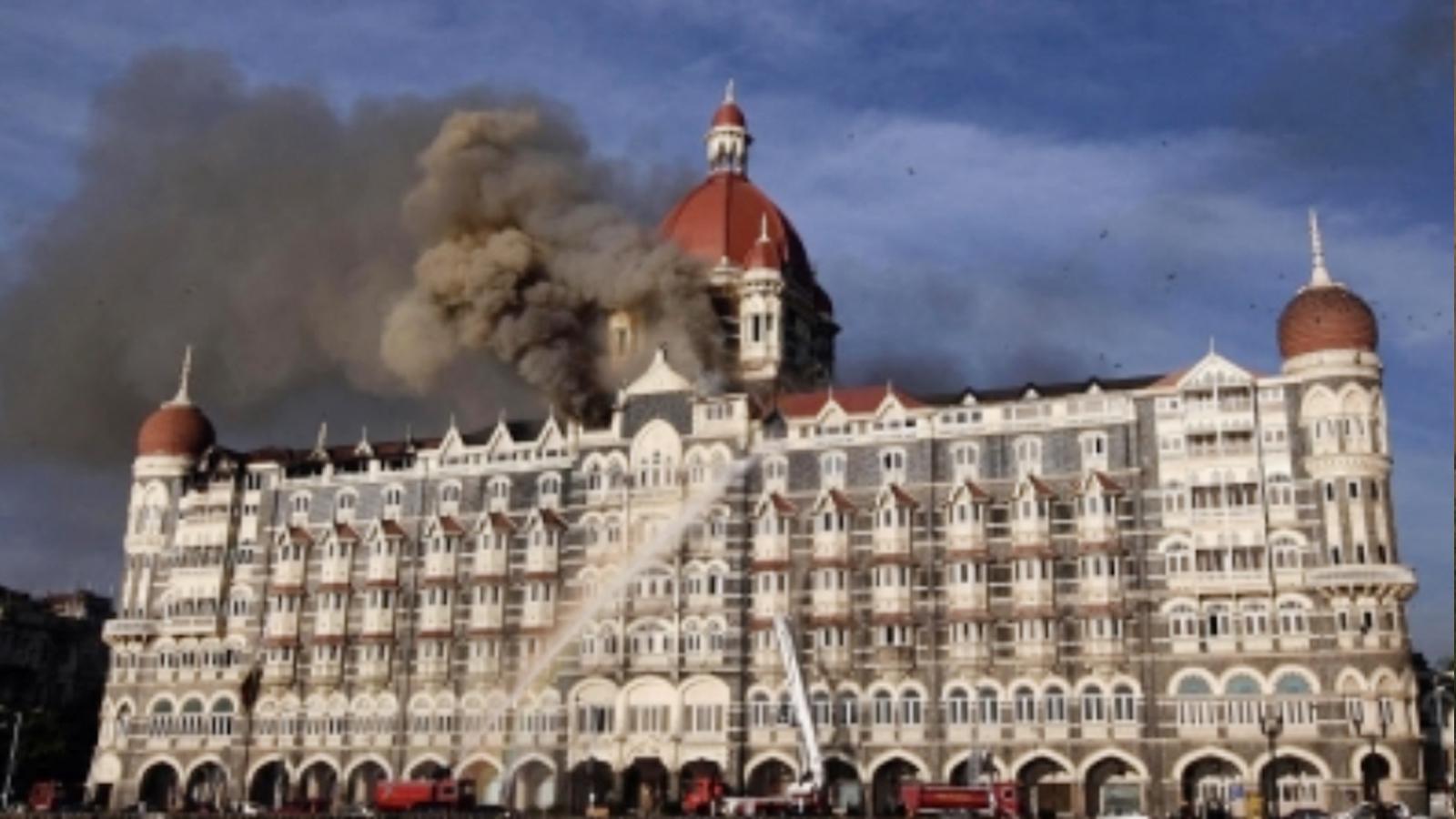The Taj Palace’s dome silhouetted against a night sky filled with flames and smoke became one of the defining images of that November night 17 years ago – an event that marked a new chapter in terror and in India’s resilient fightback.
The iconic Mumbai hotel, overlooking the Gateway of India and the Arabian Sea, witnessed scenes of unimaginable brutality between November 26 and 28, 2008.
Two luxury hotels – the Taj Palace and the nearby Trident, both owned by the Oberoi Group – were among the primary targets. At the Trident, terrorists indiscriminately fired at guests and staff in the lobby, bar, and service areas.
At the Taj, gunmen opened fire on diners at Tiffin, a popular contemporary restaurant, causing many casualties. The Kandahar restaurant on the floor above was targeted next. Grenades were lobbed as fires erupted, trapping several guests, including foreign nationals. Hostage situations soon unfolded.
It was the dedication and courage of the hotel staff – trained in emergency drills and familiar with evacuation routes – who saved at least 200 guests. Senior professionals, including then – executive chef Hemant Oberoi, led rescue efforts amid chaos.
Security forces and commandos entered the hotel, guiding most hostages to safety. The attacks at the hotels followed an earlier strike at the Chhatrapati Shivaji Maharaj Terminus (CST), one of Mumbai’s busiest stations, where two terrorists opened fire, killing more than 58 people and injuring 104.
The attackers fled by blending into the crowd. Soon after came reports of assaults at the two hotels, the Cama and Albless Hospital in Fort, the Leopold Café in Colaba, and explosions in taxis at Wadibunder and Vile Parle.
All the terrorists were eventually eliminated, except Ajmal Kasab, who was captured alive. He was later executed after due legal process.
The final toll: 166 killed and over 300 injured.
That night, Mumbai bled. In several parts of the city, its black asphalt roads turned red – with the blood of innocents and of brave officers who put duty before self. Among those martyred while attempting to protect others outside the Cama Hospital were police officers Hemant Karkare, Ashok Kamte and Vijay Salaskar.
A powerful moment of humanity also emerged at Nariman House (Chabad Centre), where Indian nanny Sandra Samuel saved two-year-old Moshe Holtzberg. As terrorists stormed the Jewish outreach centre and took Rabbi Gavriel Holtzberg, his wife Rivka, and others hostage, Sandra acted instantly. She picked up the toddler and escaped while the siege was underway, shielding him from the violence and ensuring he was not left alone in the chaos.
When security forces later entered Nariman House, they discovered that Rabbi Gavriel and Rivka had been killed. Moshe’s survival was widely credited to Sandra’s quick and selfless actions. She stayed by his side until he was reunited with family, eventually relocating with him to Israel.
The attacks, planned and supported from across the border in Pakistan, left a scar that endures to this day. As the nation remembers its heroes and mourns the fallen, the message on the posters from that time remains just as relevant: “Never forget. Never forgive.”
(IANS)














